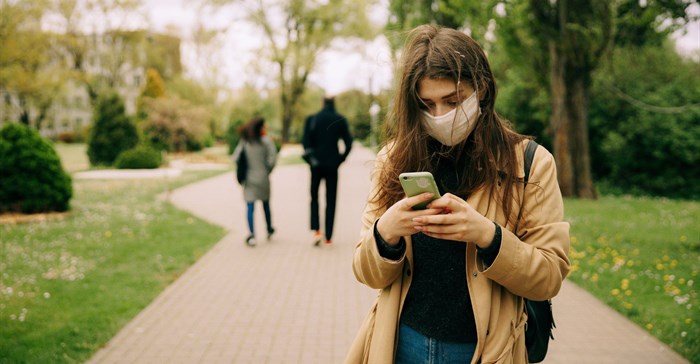






Despite the influx of Covid-19 related apps recently, there seems to be a general census globally that there is a lack of transparency with certain apps when it comes to the collection of personal data.
Of course, multibillion-dollar organisations like Google and Apple have very strict guidelines about compliancy regarding the protection of personal information and I am quite sure that if you do a Google search on data protection laws that govern any of these multinational tech giants you’ll be able to find a long list of reading material which may provide some reassurance to some.
But what’s interesting and I speak from personal experience, is that these tech giants have created a sense of trust with their consumers when it comes to their data protection policies – of course, there are those instances when it comes to a breach in their data protection and privacy which make some a little more weary than others but the question is, has it ever prompted you to take any action by closing your account or unlinking a profile?
Probably not - and the fact is that sometimes as consumers and even more so South Africans we’re a little more trusting than others and that’s because we have some sort of expectation that reputable organisations like these tech giants, banking institutions and even online stores will respect our right to privacy and they very much do, for the most part, that is of course under their control.
We do however live in a world where, when it comes to technology there is, unfortunately, no guarantee that any personal information that is stored on some cloud is actually 100% safeguarded, and in South Africa, it really is no different. Just a few days back, news broke that Experian, a consumer, business and credit information service agency suffered the largest and most significant data breach South Africa had ever experienced - exposing personal information of approximately 24 million South Africans and nearly 800,000 business entities to a suspected fraudster.
So what does this all mean for the average citizen who is potentially going to be required by law later down the line to download the South African Covid-19 tracing app and use their Bluetooth to track who they have been in contact with… well thankfully the technology is backed by the cutting edge exposure notification system that has been created by Apple and Google. The technology uses Bluetooth to notify users if they have been in contact with someone who may have tested positive for Covid-19.
When it comes to tech, there are always going to be advantages and disadvantages with varying technologies but the advantage of a Bluetooth-based system, in terms of privacy, is that it doesn’t depend on collecting location data, and so the individual identities of people are not supposedly tied to contact events. Rather the tracing apps that come into contact with each other through this technology would upload random tracing numbers which could be matched back at a later stage once someone tests positive for Covid-19. Not a surprising approach by the SA Government after the passing of the PoPI Act in July 2020.
Currently, the app uses Bluetooth and geolocation to collect a user’s personal information and that is then stored within their mobile devices in a model that is known as self-sovereignty identity. The technology is essentially used to manage digital identities which means that the individual users have control over the manner and method in which their personal information is kept and used because the personal data is stored on their mobile device, without the need to rely on a central repository – putting the user in control of their data.
Similarly, in the case of the Covid-19 tracing app, the personal information is saved on the user’s personal device and not on a centralised private or government-owned database – meaning that the personal information never physically leaves the device and, in a way, protecting the privacy of individuals in line with the PoPI Act.
What’s particularly interesting is that the Covid-19 app is a voluntary based one and only for download on smartphones. You’re probably thinking well not everyone has access to a smartphone in SA but we’ve definitely come a long way over the past couple of years with the past two years being at an all-time high for smartphone penetration. We saw an increase of almost 10% between 2018 and 2019 reaching 91.2% of the SA population, according to the Icasa report 2020.
Sure, it’s not the entire population that has access to smartphones but it’s a very significant portion which makes sense as to why this route was chosen and we know how often people are browsing on their mobile devices. If we just take a look at the latest Global Web Index report in 2020, the average time spent on a mobile device in SA is sitting an all-time high of 4:06 on average.
Of course, data has always been a contentious issue due to the rising costs which have somewhat excluded a large portion of the population from having access but the fact that telco networks have zero-rated the download and usage of the app also make it more widely available to the SA population.
We know that the roll-out of a Covid-19 app is not the end solution, it’s not the cure or even the vaccination that will keep this pandemic at bay but for me, it’s an opportunity to understand how this pandemic can affect you and those you come into contact with. For many, it’s always difficult putting into perspective the effect it will have on you, your family, friends, community and country until it hits home.
So regardless of whether the app ends up containing the spread of the virus, for me, it’s about actually seeing the spread of the virus captured through data as opposed to coming into contact with someone who is infected and being completely blind to it. The app will give a realistic view of the spread in real-time.